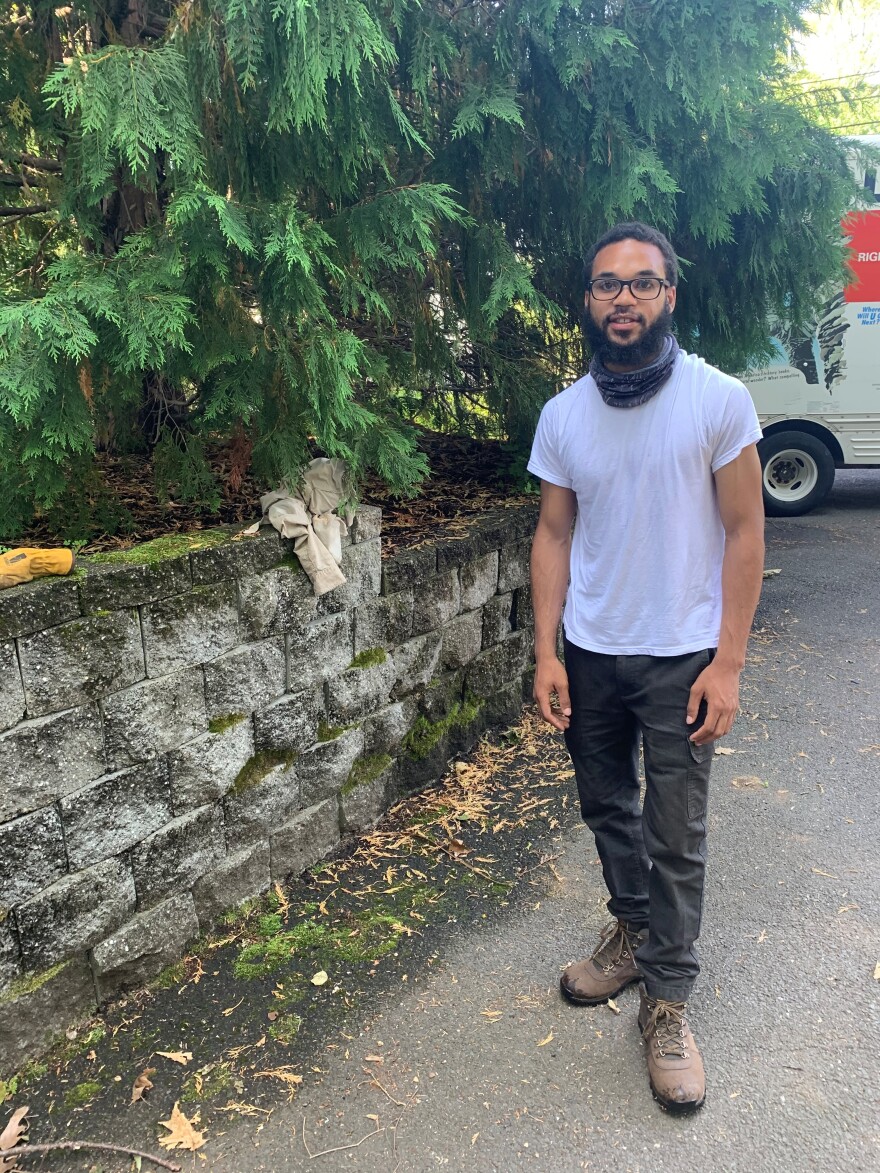Amid what amounts to a new civil rights movement, Black-owned businesses in Fairfield County say they are feeling the support of the community in ways they never have. And that boost comes in the wake of the devastating pandemic shutdowns that hit minority businesses harder than most.
We depend on your support. Donate to Connecticut Public today.
Miles Gill has come a long way since he rode around Stamford on his bike with a weed wacker as a teenager. Now 22, he owns his own landscaping business, and he has employees.
“Mostly minorities,” he said. “I try to open up opportunities for people who are rejected. If you have a certain name, you have a hard time finding a job.”
He has that focus because he learned early on -- as a 17-year-old wanting to start his own company -- that it would be harder to do so being Black.

“It’s a setback,” he said. “You can’t just walk on someone’s lawn just being African American; you have to take into account that people will be scared of you and take it as a threat.”
He says there were neighbors’ doors that didn’t open to give him the chance to explain he would cut their grass or remove some leaves.
“It’s not shame, but -- it’s hard to explain -- you’re kind of not comfortable in your skin,” he said. “If I was a white boy, people would be a lot more open to talking to me and just hearing what I have to say.”
Now just a few years later, he’s seeing changes. With the death of George Floyd and the protests that have followed, more white people are beginning to think about the issues he faces for the first time.
Gill says websites that list Black-owned businesses have popped up -- people are seeking them out, and it’s gotten him more business.
Margaret King, owner of Magnolia Chocolatier, has also noticed more support.
“There has been a change. I have gotten more orders,” she said. “People are very supportive.”
The chocolates she makes in a Stamford commercial kitchen for delivery by word-of-mouth and at fairs all over the country have started being requested everywhere.
“These days because of being on the Black-owned list, for the last few months I have gotten orders from all over the country,” King said. “I shipped to Hawaii two weeks ago.”
A recent Stanford University study shows African American businesses were hit especially hard during the COVID-19 pandemic, with more than 40% closing for good. The support the survivors are getting from the Black Lives Matter movement could be what they need to make it through.




